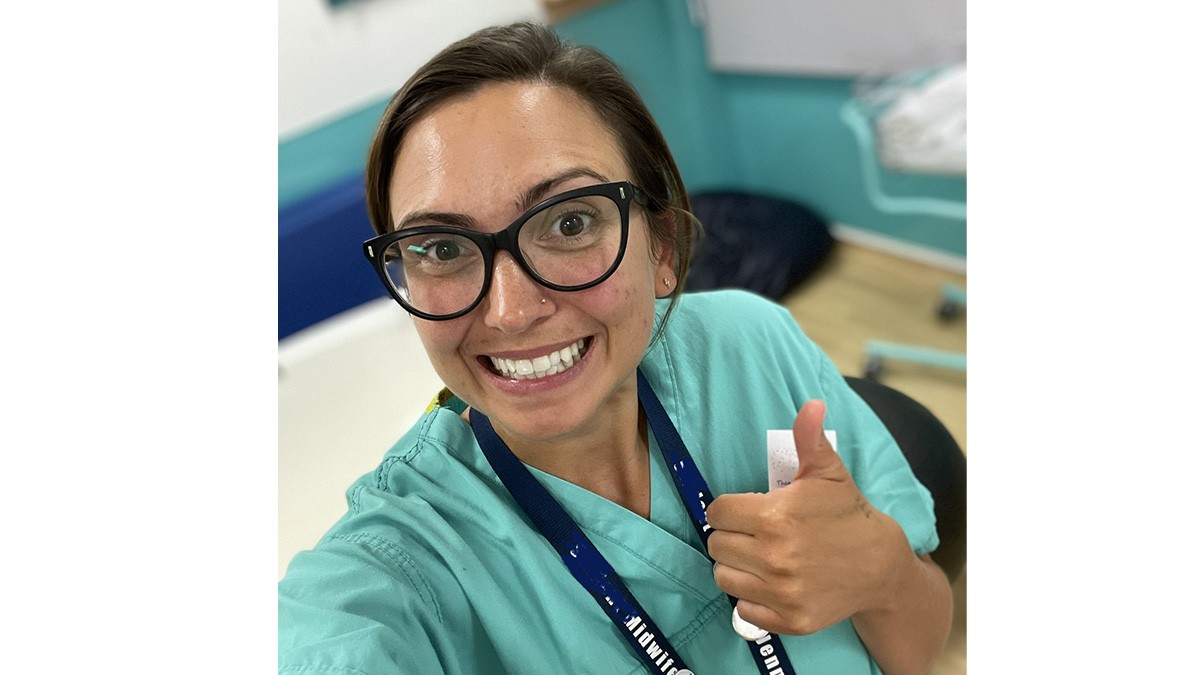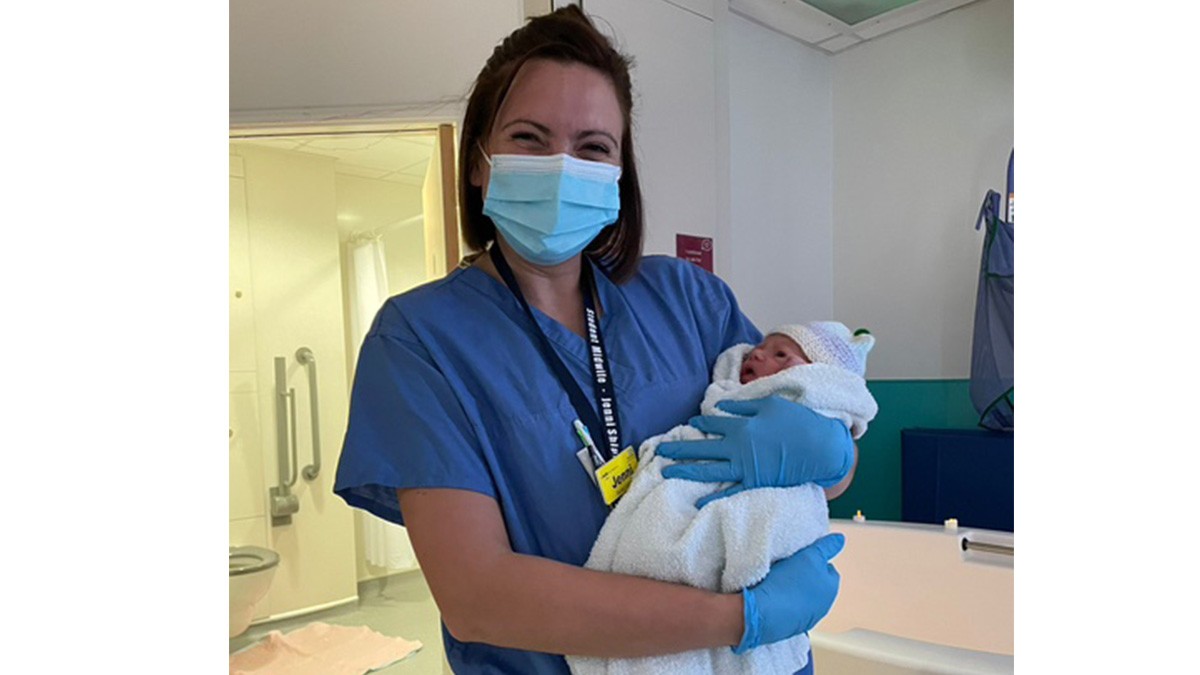“Scholarships are hugely important”
Jenni left a career in finance to train as a midwife at Surrey. She discusses her career transition and explains how the Ted Adams Scholarship helped her on this journey…

What was your route to study as a midwife?
I went to college and originally studied events management, then I went into investment banking. I was at Lehman Brothers when it collapsed in 2006. I worked my way up as an executive assistant and eventually supported Investor Relations and Marketing in a credit hedge fund.
By this point, I’d had my second child, and me and my husband had moved to Guildford, so I didn’t want to go back into that sector. I’d set up my own retail business and that was gruelling with very little reward. I decided I wanted to retrain and become a qualified professional in my own right. After we had our third child, my husband suggested I’d make a good midwife.
And you decided to find out if he was right?
I went to an open day at the University of Surrey. My mother-in-law was based at the Royal Surrey County Hospital for years. She worked in occupational health, then she became the Medical Director after studying for a Master degree. Her opinion was pivotal and she was supportive about my plan.
The more I thought about it, the more I realised one of aspects I enjoyed about motherhood was having a strong community of supportive women around me; and training as a midwife would allow me to give that support back to other women. Having worked in finance, there was an element that I wanted to do something a bit more worthwhile than just supporting already wealthy people become even richer.
Why did you choose the University of Surrey?
Living in Guildford made it an easy decision. The closeness between home and study meant it wouldn’t massively affect my kids, who were two, four and six at the time. I’m a bit of a believer in fate, too. The fact I’d decided on this new career and the ability to train in it was right on my doorstep made it a feel like the stars had suddenly aligned. The whole career transition felt like a snowball rolling downhill. Once it got started, it just kept gathering momentum.
How did you learn about the Ted Adams Scholarship?
A friend mentioned it to me. She used to work at the University and she asked me if I’d heard about it. I always assumed scholarships were for private schools. I didn’t realise they existed for university students.
I found that the Ted Adams Scholarship was exactly the sort of thing I was looking for. It was specifically to support mature students who wanted to transition into a career in nursing or midwifery. I applied and got it.
What material difference did it make?
Unless you’re from a wealthy background, studying for a degree is always going to be financially demanding. On top of this, I had three young children and I wasn’t earning money while I was training. Depending on one income to support an entire household with three kids while one of the working adults isn’t earning for three years is intense. And we still had fund necessities like school shoes, clubs and childcare.
The scholarship provided important additional money while I was training. It meant I could contribute towards the family and take some of the pressure off my husband. I used it to pay for childcare when we needed it and buy course equipment like a stethoscope, and a bought a bike to commute.
It also meant we occasionally had spare money to do things like treat the kids to the odd day out here and there. Because it’s not just been a transitional journey for me. It involved the whole family and they’ve had to buy into this and support it. They’ve all been on this journey. The scholarship support was invaluable in easing the pressure on them, too.
How important are these types of scholarships?
They’re hugely important. My background isn’t an academic one. It took me a while to find a career route that took me to university. If I’d have chosen this path at 18, I don’t think my parents would have been able to support me through a degree. I think that’s true of a lot of people.
When it comes to nursing, there’s a statistic about younger, newly qualified nurses not staying in the profession for very long. They can burn out very quickly. But mature students have a smaller rate of career attrition. So this type of support is important for the medical professions, too.
You’ve just graduated. What’s the plan?

Jenni training to be a midwife
(Please note: Photo supplied for use in this article with full parental consent)
When my official registration number comes through, I start work at the Royal Surrey County Hospital as a midwife. I’ll be in the hospital rotating between antenatal, delivery suite and postnatal wards for six months, then I’ll be working as part of a continuity team. I’ll work in a pattern of six weeks in the communities team, then six weeks in the hospital. This is good because it will keep me skilled up in all areas.
I'm super happy to be working there. I don’t think it will ever get old because every day will always bring new challenges. Sometimes it will be an anxiety-inducing emergency and sometimes it will involve spending time with amazing women who have amazing stories to tell.
I’m lucky to have found something that is so rewarding.
If you could time travel, what advice would you give the prospective undergraduate version of yourself?
I’d try to make more of the social events because they’re a good way to bond more quickly with your peers. I now realise how important that group of people have been in supporting me on this path.
I’d also warn myself that I need to be super-organised. I’m always a thorough planner, but doing this course with the demands of everything else has taken my time organisation to another level.
Read more about the Ted Adams Scholarships.